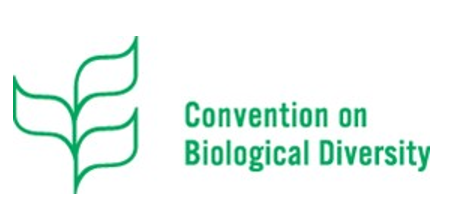
- Governments converge towards consensus for key elements of the Global Biodiversity Framework to safeguard nature
- Good progress made on issue of Digital Sequence Information
- A process will be developed to advance discussions before COP 15
Nairobi – 26 June 2022 – With six days of negotiations behind them, Parties to the UN Convention on Biological Diversity advanced a global plan to bend the curve on biodiversity loss, expected to be adopted in Montreal, Canada in December 2022.
Delegates took the text from the March meetings held in Geneva, rationalized parts of it, achieved consensus on several targets, and proposed diverse options for large parts of the framework.
Parties set out their ambitions with respect to the goals of the framework, and refined the essential targets related to conservation, sustainable use, and benefit-sharing.
They worked to develop a plan for resource mobilization and other means of implementation and highlighted the contribution of nature to climate change mitigation and adaptation.
Parties also charted the pathway for an agreement on the sharing of benefits from Digital Sequencing Information on genetic resources.
Their discussions also strengthened the role of Indigenous peoples, local communities, women, youth, and other stakeholders and to ensure that all voices will be heard, and no one will be left behind.
“I want to thank the Parties for their hard work, their commitment to consensus, and honest engagement in these negotiations” said Elizabeth Maruma Mrema, Executive Secretary of the Convention on Biological Diversity. “These efforts are considerable and have produced a text that, with additional work, will be the basis for reaching the 2050 vision of the Convention: a life in harmony with nature.”
“I call upon the Parties, in the next months, to vigorously engage with the text, to listen to each other and seek consensus, and to prepare the final text for adoption at COP 15” she said.
Discussions over the week covered the entire framework text, which includes 4 goals, 23 proposed targets, and all of the elements that will enable nations to meet them. Delegates also made progress on the issue of Digital Sequence Information; a separate agenda item related to the framework.
The important four goals of the framework - A through D, were also a subject of intense discussion:
Goal A - protecting biodiversity at all levels and preventing extinctions
Goal B - ensuring that biodiversity can meet people’s needs and support their human rights Goal C - benefits from the use of biodiversity and genetic resources are shared with equity and the traditional knowledge and rights of Indigenous and Local Communities are respected. Goal D - Adequate level of the means of implementation are enabled, including financial resources, capacity building and other supports to action.
A path for work towards COP 15 in Montreal, Canada in December 2022
Notwithstanding the important advances, a considerable amount of work will be required to advance the text for final high-level consideration by CBD’s 196 Parties at COP15.
The Meeting agreed to develop a path forward that includes the engagement of all regions preparing for talks involving all Parties immediately before the second part COP 15. These gatherings would prepare a text for final negotiation by Ministers and their delegations at the second part of COP 15.
NOTES TO EDITORS
Meeting documents (including Plenary documents such as CRPs and Nonpapers):
https://www.cbd.int/conferences/post2020/wg2020-04/documents
Recordings of the live streams of the plenary, and press events: https://www.cbd.int/live
The upcoming UN Biodiversity Conference will be held from 5 to 17 December in Montreal, Canada, under the presidency of the Government of China. The Conference will be comprised of:
- the 15th meeting of the Conference of the Parties to the Convention on Biological
Diversity. https://www.cbd.int/meetings/COP-15
- the 10th meeting of the Conference of the Parties serving as the meeting of the Parties to the Cartagena Protocol on Biosafetyhttps://www.cbd.int/meetings/CP-MOP-10
- the 4th meeting of the Conference of the Parties serving as the meeting of the Parties to the Nagoya Protocol on Access and Benefit-sharing https://www.cbd.int/meetings/NP-MOP-04
About the Convention on Biological Diversity (CBD)
Opened for signature in 1992 at the Earth Summit in Rio de Janeiro, and entering into force in December 1993, the CBD is an international treaty for the conservation of biodiversity, the sustainable use of the components of biodiversity and the equitable sharing of the benefits derived from the use of genetic resources. With 196 Parties, the CBD has near universal participation among countries. The CBD seeks to address all threats to biodiversity and ecosystem services, including threats from climate change, through scientific assessments, the development of tools, incentives and processes, the transfer of technologies and good practices and the full and active involvement of relevant stakeholders including indigenous peoples and local communities, youth, women, NGOs, sub-national actors and the business community. The Cartagena Protocol on Biosafety and the Nagoya Protocol on Access and Benefit-Sharing are supplementary agreements to the CBD. The Cartagena Protocol, which entered into force 11 September 2003, seeks to protect biodiversity from the potential risks posed by living modified organisms resulting from modern biotechnology. To date, 173 Parties have ratified the Cartagena Protocol. The Nagoya Protocol aims at sharing the benefits arising from the utilization of genetic resources in a fair and equitable way, including by appropriate access to genetic resources and by appropriate transfer of relevant technologies. Entering into force 12 October 2014, it has been ratified by 135 Parties.
More information: David Ainsworth, Information Officer, This email address is being protected from spambots. You need JavaScript enabled to view it. Terry Collins, This email address is being protected from spambots. You need JavaScript enabled to view it.
Franca D’Amico, This email address is being protected from spambots. You need JavaScript enabled to view it.
Website: cbd.int
Twitter: @UNBiodiversity
Facebook: www.facebook.com/UNBiodiversityConvention
LinkedIn: linkedin.com/company/unbiodiversity


